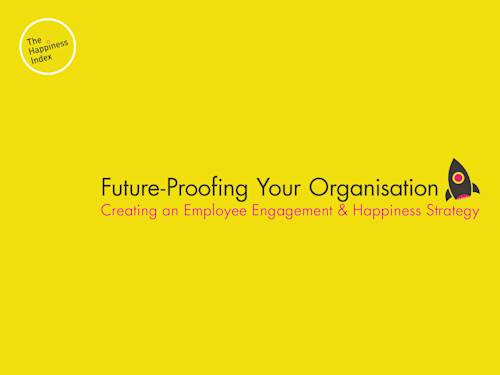
Creating an Employee Engagement AND Happiness Strategy
Believing and aligning to company values impacts workplace engagement levels. Values are associated with the Reflective brain system in our neuroscience model.
If you've just landed on this page, we recommend reading our introduction to brain systems and the neuroscience themes for more context. Otherwise, read on for everything you need to know about how employee engagement can be driven by organisational values.
We often talk about purpose as a North Star, but that’s just the direction, not the destination. The problem is a lack of clarity. We often have a general, somewhat diffused idea of our purpose. Most people would say they want to be happy, healthy, and wealthy, but this is an aspiration, not a direction. What we need is a far more precise and exclusionary type of purpose, which gives us a more specific direction.

If you look at insurance, it had a much grander ambition and purpose when it was first created. Insurance sponsored the risks involved in the adventure of going overseas and exploring the rest of the world. Otherwise, there was too much risk born to the individual who was going. So the insurance’s purpose was exploration. Today insurance is so devoid and far removed from the idea of exploration. So anybody who’s in insurance might feel detached from the purpose. If you are in a similar position, make an effort to look at your personal purpose and how it can be achieved within the workspace. See how your values can align with your company’s so that it becomes a more meaningful job because you understand why you are there.
It is a challenge getting purpose and values accurate. It is an interactive process and takes a long time. Purpose must be worked at, wordsmithed, and adapted so that it has true meaning and aligns perfectly. Every word should sparkle and jump-start endorphins. When defining values that support your purpose, it should be much more strategic. Companies with five, six, ten values that are a hodgepodge aren’t sufficiently strategic. Force yourself down to three values because that's all people can remember. Then define the behaviours that support and express those three values. For example, if family is one of your values, what does that mean? Are you treating everyone in the company as a family? What does that look like because many different types of families exist? Your values need to be articulated and demonstrated in a way that can be embraced and lived throughout the organisation.
Have leadership teams work together to understand the values and call them out when they aren’t being lived. For example, if respect is one of our values and you see a team member is not being very respectful, ask for an apology. If you don't immediately show how you want a value to be lived in a reasonable and an authentic manner, then that behaviour will be mirrored through the ranks. Values are an investment that makes everything run more smoothly. They give permission to say no to certain things because they're not part of who the company wants to be. They allow you to discard things that don’t serve the mission and bring you back to the things that give you energy.
Work is generally viewed as transactional, it’s what we have to do to get a pay check. However, we have very limited time on this earth. Author Oliver Burkeman argues the average lifespan is about 4,000 weeks. If you spend 40-plus hours a week working, then it should be something that’s meaningful for you. Without meaning, the work seems entropic and takes tremendous energy to complete. Whereas if you feel there's more purpose and meaningfulness to your work, you’ll get energy from it, even if it is tiring. Move away from being purely transactional and towards being more fulfilled in your 4,000 weeks.
*This is an excerpt from the Happiness and Humans Podcast with Minter Dial, Award-winning Author, Podcaster. Listen to the full podcast.

Linked to Engagement in our neuroscience methodology... learn more
The Happiness Index helps organisations measure the key employee engagement AND happiness drivers to power their people strategy.
Our unique platform offers the products, insights and tools to shine a light on your cultural health and empower management to drive thriving cultures.
Our neuroscience-based pre-built surveys measure the full employee experience - from onboarding to exit to empower and enable organisations to understand their people and create data-led action plans.
